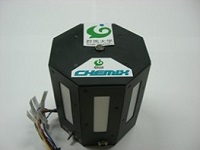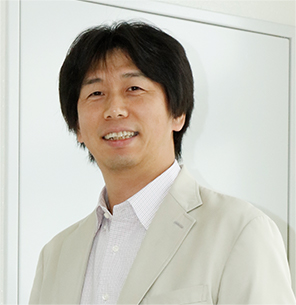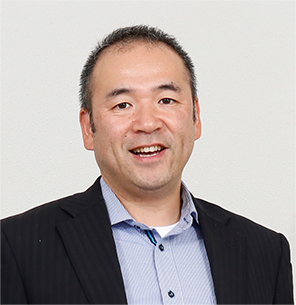Environmental Engineering Science
Program Contents

Environmental challenges such as climate change, natural disasters, growth of energy consumption, shortage of natural resources, are affecting people both globally and locally. This situation is creating demand for human resources who can resolve these challenges. The university’s Environmental Engineering Science program aims to educate engineers and researchers who can contribute to establish safe and sustainable society in harmony with the environment through collaboration between Chemical & Environmental Engineering and Civil & Environmental Engineering.
The program conducts academic activities from two aspects: 1) environmental/energy conservation and 2) infrastructure management/disaster prevention. From the environmental and energy perspectives, the program develops engineering knowledge and skills in environmental, energy, material, and biological fields for realizing a sustainable society based on chemical engineering. From the infrastructure and disaster prevention perspectives, the program develops human resources for planning, design, construction, and maintenance of safe and sustainable infrastructure and social systems.
Faculty Members and Fields of Specialization
| Faculty Members | Fields of Specialization | |
|---|---|---|
| professor | Hideyuki Itabashi | Speciation of metal ions, complexing capacity of natural water samples, and solvent extraction of metal ions based on the HSAB principle |
| professor | Takayuki Ohshima | Applications of pulsed electric field in biotechnology. Development of water treatment system with high-voltage devices. |
| professor | Jun-ichi Ozaki | Design and preparation of catalytic carbon materials, particularly used in the applications of fuel cell and biomass conversion. |
| Professor | Mitsuo Ozawa | Fire resistance of concrete, Control of cracking due to volume change in concrete at early age |
| professor | Shinji Katsura | Development of manipulation technologies for biological molecules and their industry applications |
| Professor | Masanobu Kanai | Risk communication, Community activity for disaster prevention, Disaster education |
| professor | Yutaka Kawahara | Biomass science, development of bio-based materials and utilization of natural fibrous resources |
| professor | Shin-ichi Kuroda | Development of functional and high performance materials through the surface and interface control by means of plasma and photo-techniques |
| professor | Yoshihiko Shimizu | Mechanics of sediment transport, fluvial process in stream with vegetation, and river management |
| professor | Nobuyoshi Nakagawa | Development of an efficient liquid fuel cell by means of catalyst preparation and by optimizing the electrode structure. |
| professor | Akihiko Wakai | Numerical simulation of slope failure induced by earthquake |
| professor | Tomohide Watanabe | Biological wastewater treatment, microbial and physicochemical degradation of water pollutants, Advanced water / wastewater treatment , resource recovery |
| Associate Professor | Tsukasa Ito | Water treatment, environmental microbiology and biodegradation of environmental pollutants |
| Associate Professor | Ken-ichi Uzaki | Three-dimensional structure of wind-driven currents accompanied with river including the coastal zone secondary circulations, regional sediment transport process in the Tone |
| Associate Professor | Masahiko Oshige | Development of bio-molecular manipulation methods and application of reaction process analysis by using molecule design techniques |
| Associate Professor | Takahiro Saitoh | Applied mechanics, computational mechanics and non-destructive evaluation for civil engineering structures |
| Associate Professor | Fei CAI | Earthquake-resistant measures for ground and earth structures, safety evaluation of landslides, and shallow ground thermal energy utilization |
| Associate Professor | Kazuyoshi Sato | Synthesis and processing of ceramic materials and application for energy and environmental devices |
| Associate Professor | Reiji Noda | Development and evaluation of waste/biomass energy utilization processes, Evaluation and design of a local society based on energy/mass flow analysis |
| Associate Professor | Miyabi Hiyama | Application of electrostatics on bio-separation and micro-chemical systems, development of bio-micro-electromechanical systems |
| Associate Professor | Azuchi Harano | Development of droplet levitation device and its application for micro chemical process |
| Associate Professor | Hideyuki Morimoto | Development of all-solid-state batteries and novel battery materials |
| Visiting Professor | Hiromi Shirai | Environmental combustion engineering, clean energy conversion engineering |
| Visiting Professor | Naoki Noda | Environmental combustion engineering, aerosol engineering, energy conversion of coal and biomass |
| Visiting Associate Professor |
Kenji Tanno | Numerical combustion simulation, Energy control |
Researchers
Numerical Simulation for Earthquake-Induced Landslides
Development of effective procedures to predict earthquake-induced landslides accompanying catastrophic slope failure is one of the important issues to be resolved in our ongoing efforts for improvement of disaster prevention. We have proposed a new elasto-plastic constitutive model to simulate strain-softening behaviors of sensitive soils under cyclic loading, which has been applied to the finite element simulation of a lot of past catastrophic landslides caused by each earthquake motion. We are trying to analyze the mechanism of catastrophic failure in detail with clarifying the relationships between the slope stability and the strain-softening characteristics of contained soils.

Professor
Akihiko Wakai
Development of Steam/Hydrogenation Hybrid Process for High-Grade Oil Production from Biomass
Biomass resources such as agricultural wastes or animal mature are widely spread, causing high collection and transportation costs and hindering efforts to establish their large scale utilization. To utilize this biomass requires the development of small-scale plants with high economic efficiency. We are working to establish an economically efficient plant by developing a small-scale process for unutilized biomass, which produces high-grade oil and electricity matching with local demand.

Associate Professor
Reiji Noda
Student’s voice
Daily life in my laboratory is very busy, because we must organize everything from research planning to design, construction and operation of experimental setups and summarization of experimental results. But, I like my laboratory life. That is because being busy also leads to my own growth. Whenever I failed and felt down, my supervisor and lab members always cheered me up. They also let me know “give someone a fish and you feed them for a day; teach someone to fish and you feed them for a lifetime”.
Sun Yan (China)
